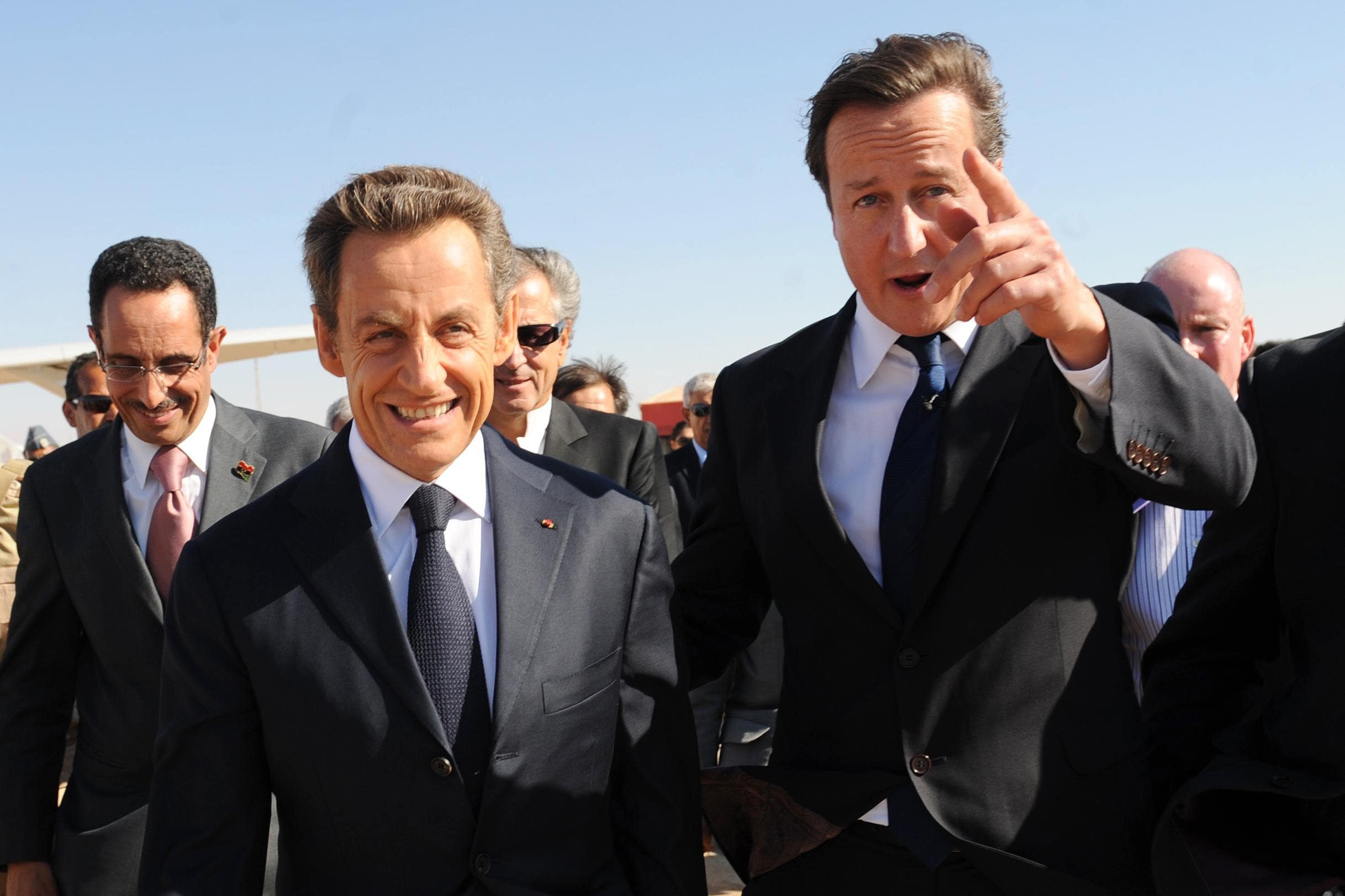Libya intervention criticism ‘bunk’, says Cameron
The Foreign Secretary has robustly defended his decision to intervene in Libya more than a decade ago, while he was prime minister.

Your support helps us to tell the story
From reproductive rights to climate change to Big Tech, The Independent is on the ground when the story is developing. Whether it's investigating the financials of Elon Musk's pro-Trump PAC or producing our latest documentary, 'The A Word', which shines a light on the American women fighting for reproductive rights, we know how important it is to parse out the facts from the messaging.
At such a critical moment in US history, we need reporters on the ground. Your donation allows us to keep sending journalists to speak to both sides of the story.
The Independent is trusted by Americans across the entire political spectrum. And unlike many other quality news outlets, we choose not to lock Americans out of our reporting and analysis with paywalls. We believe quality journalism should be available to everyone, paid for by those who can afford it.
Your support makes all the difference.Lord Cameron has robustly defended his decision to intervene in Libya during his time as prime minister, calling criticism of the action “bunk”.
The Foreign Secretary, who appeared before the Foreign Affairs Committee on Tuesday, faced questions from MPs about the military action in 2011.
It was the first time he had been grilled by MPs since his surprise return to frontline politics and entry into the House of Lords.
During his time as PM, an international coalition led by Britain and France launched a campaign of air and missile strikes against Colonel Muammar Gaddafi’s forces in March that year after the regime threatened to attack the rebel-held city of Benghazi.
A Foreign Affairs Committee report in 2016 described Britain’s military intervention in Libya as based on “erroneous assumptions” and an “incomplete understanding” of the rebellion against the former dictator.
It also heavily criticised Lord Cameron for turning a limited intervention intended to protect civilians into an “opportunist policy of regime change” based on inadequate intelligence.
Recently returned to Government, he rejected some of the report’s findings.
We acted to prevent what could have been a huge humanitarian crisis and slaughter
“I remember reading that report … The information I had at the time – I don’t think it was inaccurate – was that Colonel Gaddafi was heading towards Benghazi, where he was threatening to kill large numbers of his own population,” he told the committee on Tuesday.
“We had seen evidence of that happening already.
“We acted to prevent what could have been a huge humanitarian crisis and slaughter.”
He added: “I think the information on which we acted was correct and I disagree with the report.”
Lord Cameron said allies such as France and the US shared the concerns he had about the situation in the north African country.
He told MPs: “The idea that, as prime minister, you would launch some action in Libya, on the basis of what… you thought it would be a good idea for no reason. We were genuinely concerned there was going to be a slaughter.
“It was right to intervene, it was right to stop Gaddafi killing his own people. It was right to give that country the chance of a brighter future. They didn’t want to have that help in reconstruction.”
During the two-hour-long hearing, Lord Cameron also faced questions about the Israeli bombardment of Gaza and the UK’s relationship with China.
The Foreign Secretary has said he was “worried” that Israel may have acted in breach of international law in the Middle East conflict, but he also insisted that it was not his job to make a “legal adjudication”.